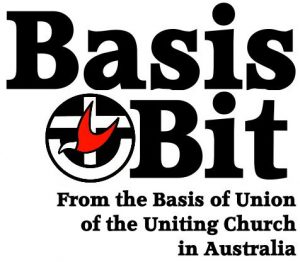19 May – Not a politically correct God
Easter 5
19/5/2019
Acts 11:1-18
Psalm 148
John 13:31-35
In a sentence:
God does not merely call us to love, but makes that love possible
The whole of the New Testament is written against the background of an unflinching belief in the resurrection of Jesus, not simply as a thing which was now ‘believed’ but as a thing which made a difference to the way we live and experience each other and the world. ‘Jesus is risen’ is code for ‘the world is now a whole other new place”.
The book of Acts, from which we hear quite a bit each year after Easter, looks like a history of what happened next after Easter. Yet, more than this, it is history as an account of the kind of thing which would necessarily take place if it were the case that Jesus was risen from the dead.
We can see the difference between a mere historical account of what happens next and the theological, resurrection-informed experience of what happened in the details of our reading this morning – in particular in the unexpected way in which Peter defends what happened in the house of Cornelius.
The crisis is that Peter seems to have transgressed the hard boundary between Jew and Gentile: ‘Why did you go to uncircumcised men and eat with them?’ From the moral and ethical outlook of modern liberal western society it looks as if what Peter has done is ‘obviously’ the right thing. Most of us today hold that everyone should be treated equally, have the same rights, not be put down or otherwise mistreated, and so on.
Yet Peter does not offer a moral argument for his actions along these lines. Instead, he accounts for his actions by ‘blaming’ God. Speaking of his vision of being commanded to eat unclean foods, he quotes God: ‘What I have made clean you must not declare profane.’ The reason for the breaking down of this barrier – that between Jew and Gentile – is not liberal ethics but divine command. Peter doesn’t know about the ‘brotherhood of man’ or any such thing; ‘God made me do it’ is the reason he gives for doing what we would consider simply to be the clear moral choice.
Now, there is nothing wrong with the moral ideals we have about everyone being equally human to everyone else. It is just that that is not what our text is about. The Cornelius incident is about what was thought to be a God-imposed distinction between Jew and Gentile now being overcome by God. And so the resolution of the dispute back in Jerusalem is not, ‘Ah, yes, of course the Gentiles are people too! How foolish of us!’ Rather, the Jewish Christians turn to the praise of God saying, ‘Then God has given even to the Gentiles the repentance that leads to life.’
In the election of Abraham and Sarah as patriarch and matriarch of the people of God there is actually nothing to suggest that God’s love for this people means God’s hatred or exclusion of all other peoples. In fact, just the opposite is found in the covenant with Abraham: ‘through you will all peoples be blessed’ (Or, ‘will all peoples bless themselves’, depending on the translation.) But there had developed a very sharp distinction in the minds of the Jews by the time of Jesus, so that Peter could say to the Gentile Cornelius, ‘Even you yourselves know that it is unlawful for a Jew to associate with or to visit a Gentile’ (Acts 10.28).
This distinction had taken on God-proportions, and its violation was understood to have consequences for a person’s standing before God (in terms of ritual cleanness). It doesn’t go too far to say that, for pious Jews of the time, God required of them their self-isolation from Gentiles – it had become to be understood to be divinely instituted. And so it would have felt to Peter that God was changing God’s own rule here: God was contradicting what had being held, and held for the sake of God.
And now we can see how this is an event which has to do with the resurrection of Jesus, and so with the power of God, and not simply with human ethics. For it was for God’s sake – as an act of piety – that Jesus was executed, because he was perceived to be a threat to the religious and political safety of the people. The resurrection, then, is God standing against God, God in heaven contradicting the God in our hearts, revealing that the two are not the same and that we are serving the wrong one.
When God pours out the Holy Spirit on the household of Cornelius the resurrection happens again: God raises the dead. Only, those who are raised are not just Cornelius but Peter and, later, the other believers back in Jerusalem. These are raised in the sense we know from Saint Paul, who describes this God as the one who gives life to the dead and calls into being that which did not exist. What ‘did not exist’ for Peter and the other Jewish Christians was that God’s work in Christ had anything to do with the Gentiles, for how could it? ‘It is unlawful for a Jew to associate with Gentiles…’
But now that Christ clearly did have something to do with the
Gentiles, a new beginning met with a new understanding and the dead were raised, eyes were opened, and God was glorified.
If we take away from the story of Peter and Cornelius only the message that God loves everyone and so we ought to too, then we render the story irrelevant because it tells us nothing most of us don’t already know. Perhaps more problematically, this seems to imply that such love is actually possible – that we ought to be ‘able’ to love each other, and so to usher in the kingdom.
But the Jewish Christians back in Jerusalem praise God for what Cornelius experienced, and we must take this with utter seriousness. The implication is not simply that we should be loving and accepting of each other but that such love and acceptance begins as a work of God.
This being the case, we might also note that the rather modern notion of ‘love and acceptance’ doesn’t really fit the story, or isn’t rich enough for the story. For the Gentiles are not given a mere welcome but a repentance: ‘… God has given even to the Gentiles the repentance that leads to life’ (11.18). The love of God is that the loved are now free, or even ‘allowed’, to change. Their humanity is indeed recognised but so also its deficiencies; God’s ‘love’ is here the possibility of repentance, and not of mere ‘inclusion’.
So neither the Jews nor the Gentiles are the ‘good guys’ here, or the victims. Borrowing again from Paul, all have fallen short of the glory of God. This is the accusation, the ‘bad news’ of the gospel.
But the important thing is that the accusation is a diminishing echo which sounds after the ‘big bang’ – the moment of creation – the act of resurrecting grace which stands Peter and Cornelius and all they represent on an equal footing of being loved, forgiven and accepted by God.
And so it is, as we sang in our opening hymn, that we pray that we might love, and see whatever love we might manage as an answer to prayer – the acts of today’s apostles, working out the logic of the resurrection of Jesus, to the glory of God.
For the benefit of all God’s people, may this prayer be ever on our lips, and find its answer in the faithfulness of the God who keeps his promises by making it possible for us to love one another.
Amen.



 Bruce Barber’s The Lord’s Prayer is an introduction to this Prayer – and to Christian prayer generally – as specifically Christian prayer. After framing the problem of prayer for the modern mind – believers and non-believers alike – Barber unpacks the Prayer line by line, drawing out its specifically Christian nuances. The study is supported by guiding questions and is suitable for personal or small group use; it could be comfortably be covered in a 4 to 6 week study series, although returning to the material again and again will be rewarding.
Bruce Barber’s The Lord’s Prayer is an introduction to this Prayer – and to Christian prayer generally – as specifically Christian prayer. After framing the problem of prayer for the modern mind – believers and non-believers alike – Barber unpacks the Prayer line by line, drawing out its specifically Christian nuances. The study is supported by guiding questions and is suitable for personal or small group use; it could be comfortably be covered in a 4 to 6 week study series, although returning to the material again and again will be rewarding.